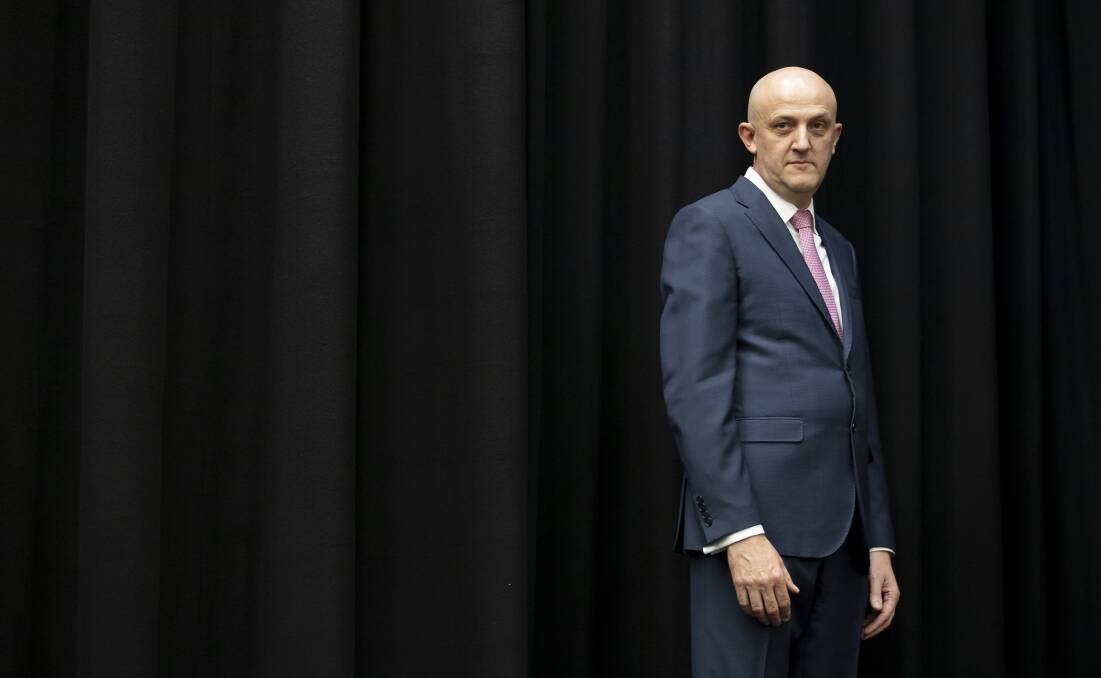
The rise of right-wing extremism is now occupying a third of investigations by Australia's domestic security agency and the COVID-19 crisis has only made it spread quicker, a new annual report has outlined.
Subscribe now for unlimited access.
$0/
(min cost $0)
or signup to continue reading
In ASIO's 2019-20 annual report, the spy agency's director-general Mike Burgess outlined some of the threats, including counter-terrorism and foreign interference and subversion.
In the counter-terrorism department, Sunni Islamic extremism remained the primary threat but Mr Burgess said the rise of right-wing extremism in recent years was a growing concern.
The report outlined right-wing extremism now accounted for a third of counter-terrorism investigative subjects over the reporting period.
"While we have maintained continuous and dedicated resources to this area, extremists such as neo-Nazis represent a serious, increasing and evolving threat to security," the report read.
"These groups are also becoming ideological: more aware of and committed to specific dogmas, philosophies and views.
"They draw from a diversity of ideas and are attracting a younger membership who display few overt signs of their extremist ideology."
The COVID-19 pandemic served to fuel recruiting into these ideologies with more Australians online than ever.
"They are seeking to exploit social and economic dislocation; and their extremist ideology has been spreading more quickly and widely as Australians spend more time online engaging with like-minded individuals," the report read.
While the threat remains, ASIO's report said violence and sabotage had yet to materialise during the pandemic.
Despite the growth of right-wing extremists domestically and abroad, Home Affairs minister Peter Dutton has so far resisted calls to list any of the groups as terrorist organisations.
"If somebody is going to cause harm to Australians, I just don't care whether they're on the far right, far left, somewhere in between: they will be dealt with," Mr Dutton told reporters in February after ASIO's first annual threat assessment.
"If the proliferation of information into the hands of right-wing lunatics or left-wing lunatics is leading to a threat in our country, then my responsibility is to make sure our agencies are dealing with it, and they are."
In December 2019, Philip Galea was found guilty of two terrorism-related offences, in what ASIO described as the country's first right-wing extremist conviction.
Mr Galea was found to have been plotting a terrorist act against various left-wing sites in Melbourne.
READ MORE:
The report's highlights follow days after Home Affairs secretary Michael Pezzullo also pointed to the risk of right-wing extremist and fascist groups in the country.
In his address at the Australian National University's National Security College, Mr Pezzullo added a number of growing security risks to his register.
Among them were the rise of right-wing extremism, politically-motivated violence driven by internet conspiracies and the threat of misinformation and disinformation, which he referred to as the "death of truth".
"Complacency is certainly not warranted in the face of this register - please don't get me wrong - but nor is existentially pessimistic fatalism," Mr Pezzullo said in his address.
"An exaggerated sense of ...danger ... is positively harmful as is the over application of threats. Overarming the state is as great a danger as underpowering it."


